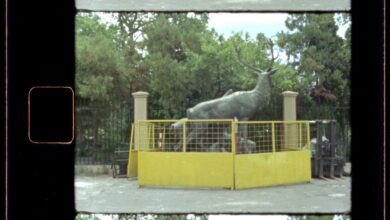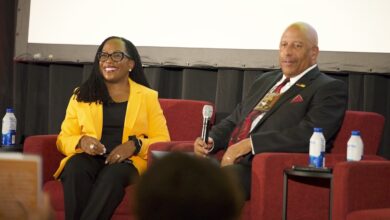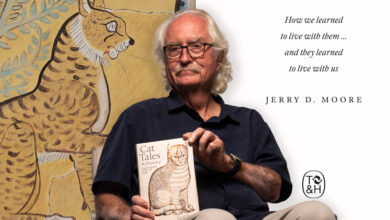
Matthew Hernandez is on a roll.
On May 1, the English literature major took first place at the 35th Annual California State University Student Research Competition (SRC) in the Humanities and Letters undergraduate category. The win comes two months after he advanced to the statewide competition, having placed first in the same category at the CSUDH Student Research Conference.
Hernandez says the two SRC wins were a memorable way to cap off his final semester at CSUDH.
“It was a wonderful experience competing with others in the CSU system,” says Hernandez, who was one of seven CSUDH students selected to represent the university at SRC. “But I didn’t feel any more daunted going into the statewide competition. I felt that the Dominguez Hills student researchers back at campus were just as tough.”
Hernandez won for the same research project he presented at CSUDH’s Student Research Conference: “’Please Don’t Kill Me:’ Confronting Racist Violence in Contemporary Young Adult Literature.” In his research, he redefines this emerging subgenre of young adult literature through the framework of confrontation.
Matthew Hernandez’s research focuses on what he refers to as “novels of confrontation.” To learn more about his work, visit news.csudh.edu/2021-student-research-conference/.
Hernandez began the work that would ultimately become his competition research project in December 2019, spending hundreds of hours studying with the guidance of his faculty mentor, Associate Professor of English Helen Oesterheld, who he calls the “bedrock of my academic life.”
For the CSU statewide conference, his research team recommended that he alter his prerecorded presentation by cutting it down to eight minutes and embedding video of himself into the piece instead of the voiceover-only format he used during CSUDH’s Student Research Conference.
After his presentation, the judges inquired about his plans for utilizing his winning research. “I was overwhelmed by the response to my work and was especially delighted by how timely and poignant the judges felt about my research,” Hernandez says.
He told the judges: “In addition to expanding my research in my Ph.D. program, I hope that this work will be used to reevaluate how we educate young people about racism, both in and out of the classroom, and how we select books for high school and undergraduate courses.”
New Chapters
Later this month, Hernandez will graduate with his peers in the Class of 2021. Like many CSUDH students, he had a nontraditional academic journey. His began after a successful stint in the corporate world.
After earning an associate’s degree from Fullerton Community College, Hernandez shelved his academic career to work in the restaurant industry, eventually ending up at Staples Center where he worked for two and a half years.
“I guess you’d call me a nontraditional student. I became general manager of five restaurants with a staff of a couple hundred under me,” he explains. “I was working 80 to 90 hours a week until I was about 30 years old. That’s when I decided to leave and to go back to school. I really began to hate my role in the corporate world, and ultimately burned myself out.”
Hernandez came to CSUDH in 2018 to finish up his undergraduate degree. With the goal of going on to a doctoral program, he applied and was accepted into the College of Arts and Humanities Mellon Mays Undergraduate Fellowship Program in 2019.
“I wanted to get into teaching, and for my path that meant a lot of research, which I got a lot of support with from Mellon Mays and the Dominguez Hills community,” he says. “Now, I’m just really stoked that I’m going to continue this educational journey at one of my dream schools, and hopefully obtain a Ph.D. and become a professor.”
The “dream school” Hernandez will attend this fall is USC, in the Literature Ph.D. program. It’s one of the six universities that accepted him.
“My ultimate goal is to come back and teach literature at the college level,” he says, “and I really want to do that at a Cal State campus or another university that serves underserved communities – maybe at a historically Hispanic serving institution like DH, or one that runs parallel with its mission.”









